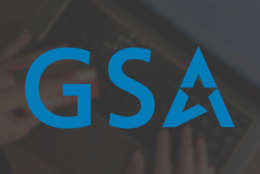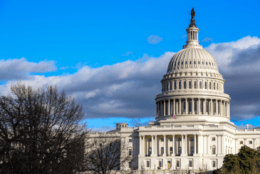Acquisition
-
With the start of the new fiscal year (FY24), the Federal Acquisition Service (FAS) launched its much-anticipated organizational realignment. The realignment breaks down regional stovepipes across FAS, creating a more customer focused structure to support federal agencies and industry partners serving those agencies.
October 20, 2023 -
Tiffany Hixson, GSA’s assistant commissioner for the Office of Professional Services and Human Capital Categories in the Federal Acquisition Service, said after more than 1,900 questions about the OASIS+ program, she’s hopeful to start reviewing bids.
October 19, 2023 -
In an address to the Association of the U.S. Army, Gen. Randy George, the service's new chief of staff, demanded a simpler, easier-to-use network. He's the latest in a long string of Army chiefs to make the same request, but officials think it's finally doable because of recent institutional changes.
October 16, 2023 -
GSA plans to centralize its application security program amid a broader push to ensure the government only relies on secure software.
October 13, 2023 -
This new rule gives the Federal Acquisition Security Council the ability to tell contractors when to exclude or remove a product deemed risky.
October 11, 2023 -
Chaos in one chamber of Congress threatens passage of the National Defense Authorization bill and the chances for full year 2024 appropriations later on. There are some places contractors can focus on in order to help the government keep its normal operations going on.
October 11, 2023 -
Contractor employees will have enhanced whistleblower protections starting Nov. 6 after a years long effort to improve protections.
October 06, 2023 -
Fiscal 2024 started off like most fiscal years, with a Continuing Resolution. The government is still spending, and contractors have lots of opportunities. For the top opportunities in the year ahead, Federal Drive Host Tom Temin spoke with Bloomberg Government Senior Data Analyst Paul Murphy.
October 06, 2023 -
The HR Line of Business and Quality Service Management Office completed this year-old effort earlier this year to update the HR business reference architecture.
October 05, 2023 -
The acquisition rules stem from recent cyber incidents like the SolarWinds breach.
October 04, 2023 -
Cyber companies were left holding the bag of bid and proposals costs to the tune of hundreds of thousands of dollars when the Air Force abruptly cancelled a huge multiple award contract.
October 03, 2023 -
A Department of Homeland Security (DHS) initiative called "the Joint Requirement Council" hasn't gone very far in 10 years. The Council is supposed to discover capabilities multiple DHS components have in common, in order to avoid duplication and redundancy. But the Council doesn't meet very often and no one at the top seems to pay any attention, according to the Government Accountability Office (GAO).
September 27, 2023 -
Sonny Hashmi, the commissioner of the General Services Administration’s Federal Acquisition Service, said the new organizational approach will be made up of five divisions and focused on agency customers.
September 25, 2023 -
The PAP is a significant policy document, providing guidance to FAS contracting officers regarding the negotiation of Federal Supply Schedule (FSS) contracts. It essentially modifies the Federal Acquisition Regulation (FAR) and General Services Acquisition Regulation (GSAR) regarding the negotiation of fair and reasonable pricing under the Federal Supply Service (FSS) program.
September 22, 2023 -
In today's Federal Newscast: A State Department contractor has been arrested for allegedly sharing classified information with a foreign government. Cisco Systems is buying cybersecurity and data firm Splunk for $28 billion, in a cash deal. And the Air Force abruptly cancels a huge cybersecurity solicitation.
September 22, 2023












